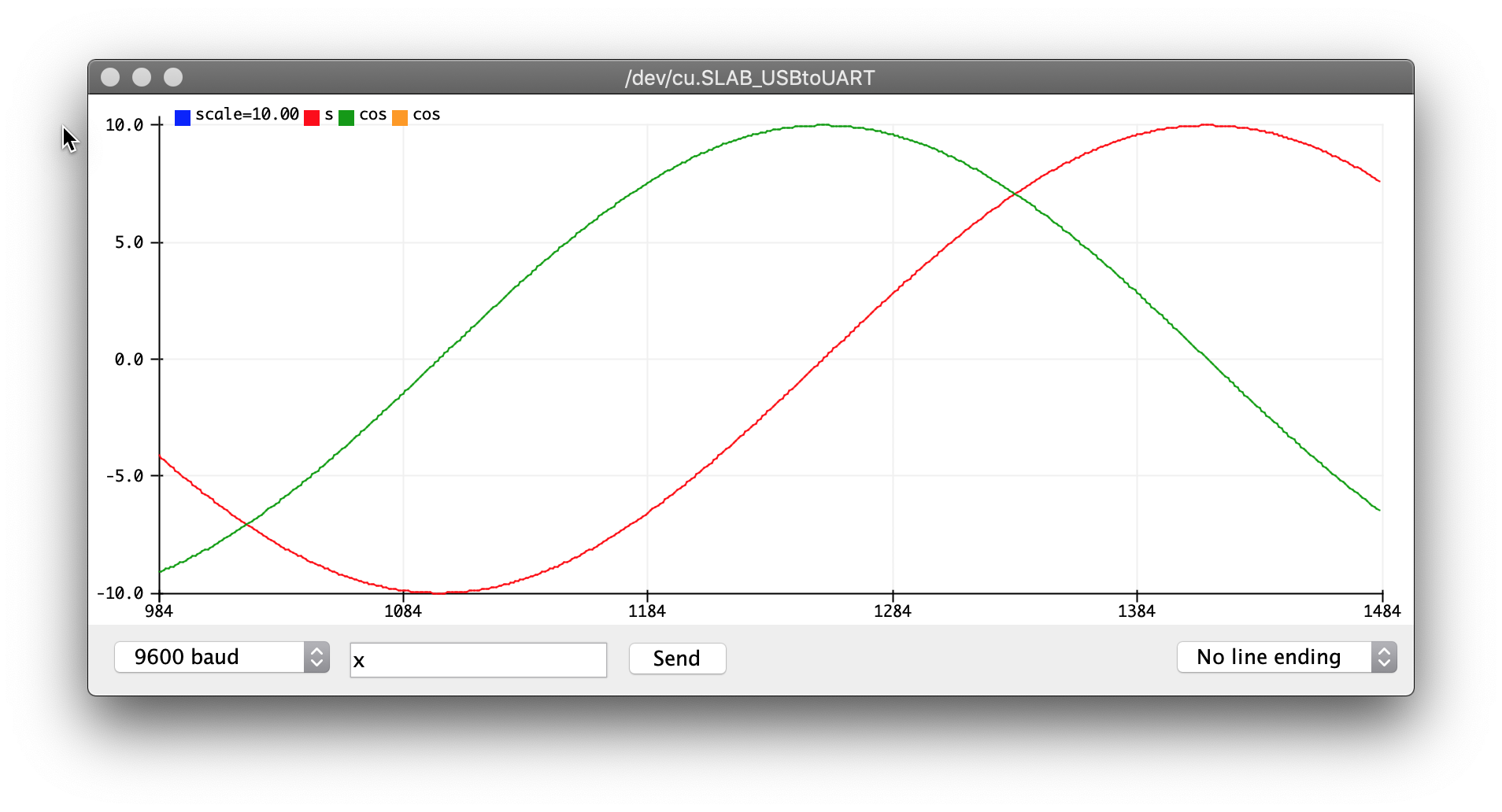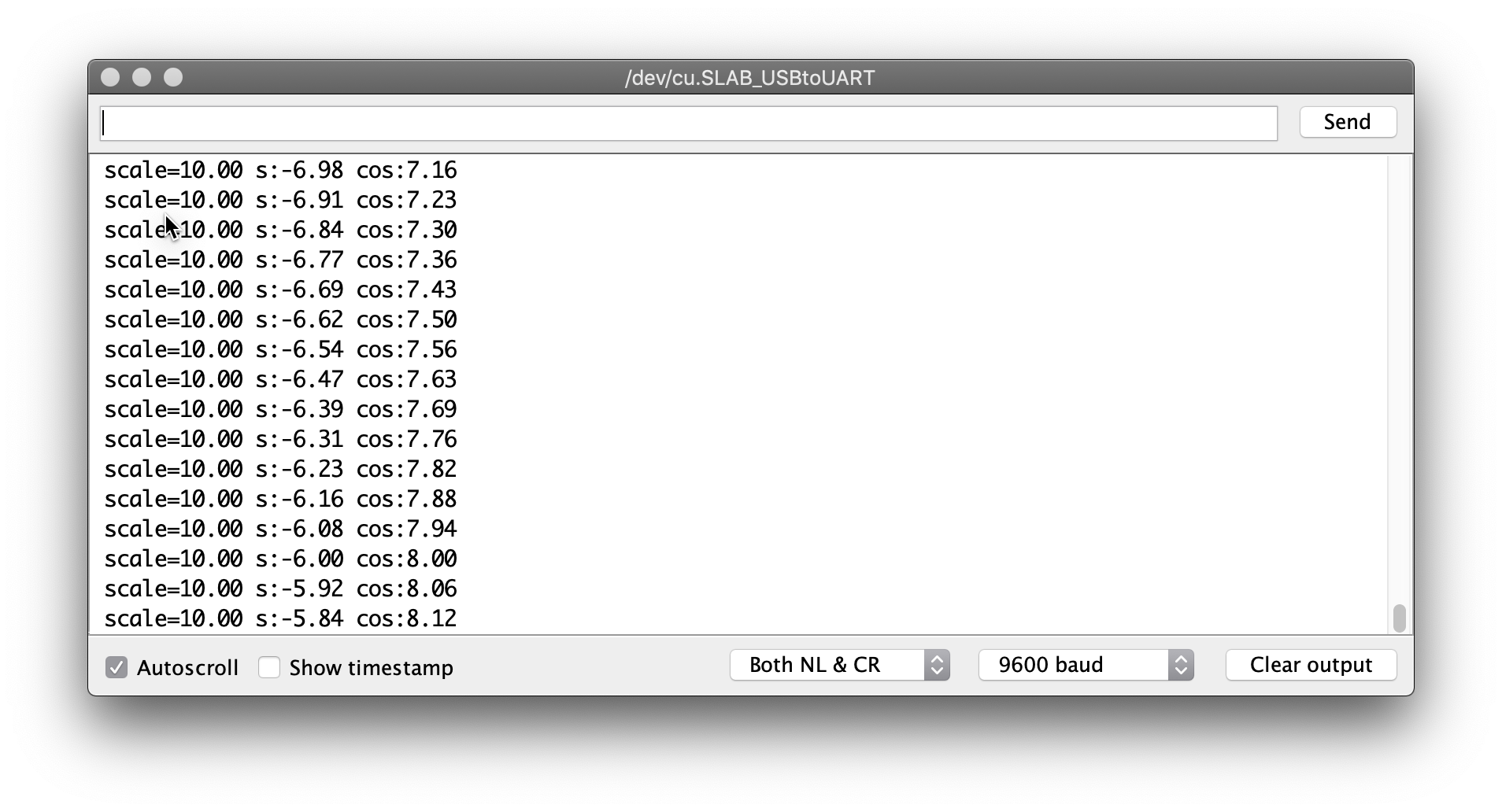The macros defined in this package make it easy to properly format data for display by the Arduino Serial Plotter program. It's also not a bad way to display data in the Serial Monitor for many applications.
The Arduino Plotter accepts named values in the following format
foo:43 bar:65 baz:21
The key and value are separated by a ':', and multiple key/value pairs are separated by white space. If you use '=', it conveniently displays the key and value on the top line with the other keys.
Usage:
- MONITOR(v) will output the variable v, keyed by the variable name.
- MONITOR2(k, v) allows the key to be specified. It's useful if v isn't a variable name.
- MONITOR_ENDL() will end monitor output.
- DISPLAY(v) and DISPLAY2(k, v) are similar to MONITOR and MONITOR2, except they use '=' as a separator, giving a non-plotted display of the key and value.
When a program is debugged defining NO_MONITOR_OUTPUT will remove the plotting code from the program.
Example:
#include "ArduinoMonitor.h"
#include <math.h>
void setup() {
Serial.begin(9600);
}
// Uncomment the following line to disable monitor output
// #define NO_MONITOR_OUTPUT
float scale = 10.0;
float x = 0.0;
void loop() {
x += .01;
float s = sin(x) * scale;
float really_long_name = cos(x) * scale;
DISPLAY(scale);
MONITOR(s);
MONITOR2("cos", really_long_name);
MONITOR_ENDL();
}

